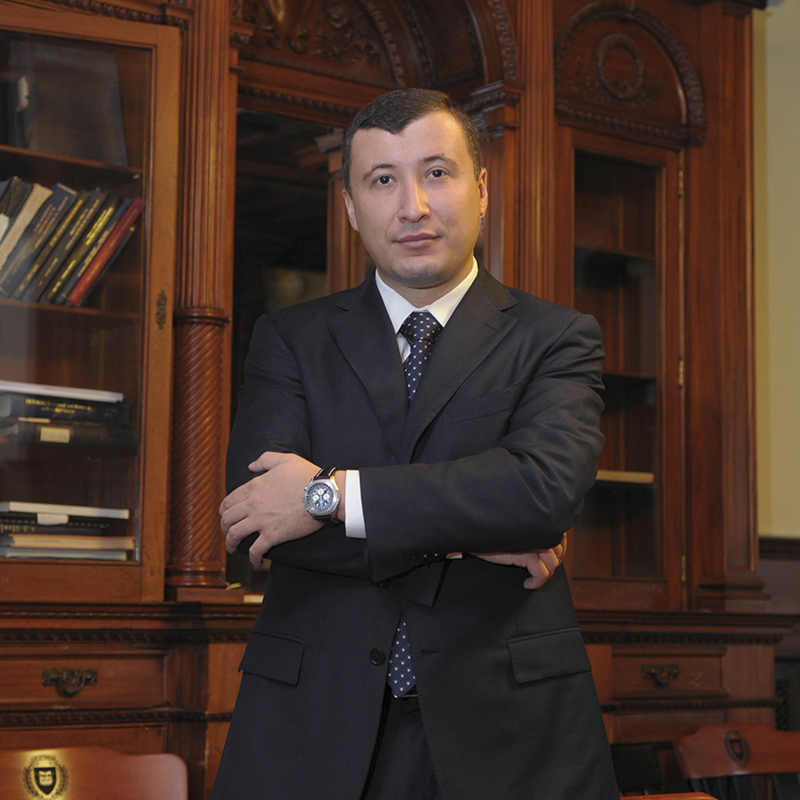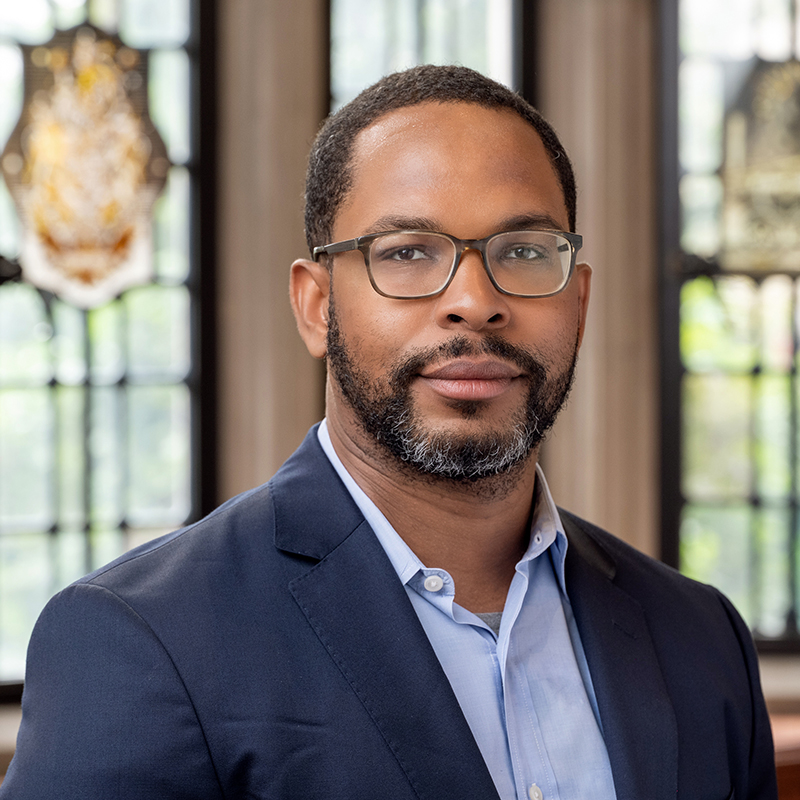The Blue Center for Global Strategic Assessment is pleased to announce the recipients of its first round of Faculty Research Initiative funding. Initiatives are designed to run for one or two years and produce concrete deliverables that will contribute to the exercise of statecraft.
The Blue Center gives priority to research proposals from Jackson School faculty but considers submissions from any Yale-affiliated faculty members. The center plans to announce a second call for proposals during the spring semester.
“The faculty represented in our first round of initiatives are from different disciplines and have different topical areas of focus,” said Phil Kaplan, executive director of the Blue Center. “But they have all proposed fascinating initiatives with an emphasis on how the results of their project can concretely feed back into policymaking and governance.”
In addition to funding faculty research, the Blue Center also makes short-term awards to students to fund research and travel over the winter, spring, and summer breaks.
“Research is at the center of what we do as a university and as the Jackson School,” said Professor Jennifer Gandhi, the deputy dean of the Jackson School and a member of the Blue Center’s faculty board of directors. “It’s wonderful that we can facilitate this kind of high-quality, impactful research from a such a range of great scholars.”
The first round of Blue Center Faculty Research Initiative awardees are:
Supply Chain Disruption Initiative
Faculty Lead: Aleh Tsyvinski
 It has become increasingly clear that supply chains are a critical component of the global economy. This research initiative will build on the research team’s expertise in analyzing megadata on supply chain disruptions to develop a comprehensive index and analysis specifically aimed at critical products. The initiative will develop a unique data infrastructure at global scale by integrating large, federated commercial and administrative datasets, which will provide an unprecedented level of granularity in understanding global firm-to-firm supply chains. This effort will put the Blue Center at the forefront of this area of research. The initiative’s main deliverable will be a comprehensive, granular, and near real-time index for critical and national security supply chain disruptions— the Blue Center Critical Supply Chain Index and Monitor.
It has become increasingly clear that supply chains are a critical component of the global economy. This research initiative will build on the research team’s expertise in analyzing megadata on supply chain disruptions to develop a comprehensive index and analysis specifically aimed at critical products. The initiative will develop a unique data infrastructure at global scale by integrating large, federated commercial and administrative datasets, which will provide an unprecedented level of granularity in understanding global firm-to-firm supply chains. This effort will put the Blue Center at the forefront of this area of research. The initiative’s main deliverable will be a comprehensive, granular, and near real-time index for critical and national security supply chain disruptions— the Blue Center Critical Supply Chain Index and Monitor.
Red Sea Inequality Initiative
Faculty Lead: Alden Young
 The Red Sea Arena, spanning from East Africa to the Arabian Peninsula, is one of the most unequal spaces in the world: nation states within the region demonstrate vast disparities in security and wealth. This research initiative will focus on the impact of those disparities for three pressing challenges confronting the region: 1) the Scramble for the Red Sea which is marked by increased geopolitical competition and power projection, 2) economic diversification as a response to global efforts to promote decarbonization and its impact on countries around the Red Sea basin, 3) the impacts of climate change on societies surrounding the Red Sea. The initiative aims to deliver the production of novel data sets and historically-informed analysis that can contribute to policy efforts such as conflict resolution in Sudan, South Sudan, Yemen, Ethiopia, and Somalia, as well as stability in the Gulf Cooperation Countries.
The Red Sea Arena, spanning from East Africa to the Arabian Peninsula, is one of the most unequal spaces in the world: nation states within the region demonstrate vast disparities in security and wealth. This research initiative will focus on the impact of those disparities for three pressing challenges confronting the region: 1) the Scramble for the Red Sea which is marked by increased geopolitical competition and power projection, 2) economic diversification as a response to global efforts to promote decarbonization and its impact on countries around the Red Sea basin, 3) the impacts of climate change on societies surrounding the Red Sea. The initiative aims to deliver the production of novel data sets and historically-informed analysis that can contribute to policy efforts such as conflict resolution in Sudan, South Sudan, Yemen, Ethiopia, and Somalia, as well as stability in the Gulf Cooperation Countries.
Tariff-Quota Agreements Initiative
Faculty Lead: Mayara Felix
 The ability to successfully promote a nation’s interests when negotiating a trade agreement is a key component of statecraft. While much is known about the potential effect of standard tariff reductions—the most common and simplest feature of bilateral trade agreements—little is known about other, more complex features of trade agreements. This project focuses on one such feature: tariff quotas. Tariff quotas are a tool used in some trade agreements, by which imports within the quota pay lower tariffs than imports above the quota. Using the U.S.-Colombia Trade Promotion Agreement as a case-study, and undertaken in conjunction with economists at the Federal Reserve Bank and the Central Bank of Colombia, this initiative will produce a state-of-the-art research paper whose findings can directly inform tariff policy. The research will be communicated to practitioners and policy audiences (e.g., IMF, World Bank, the Federal Reserve Bank, Banco de la República de Colombia, and other central banks).
The ability to successfully promote a nation’s interests when negotiating a trade agreement is a key component of statecraft. While much is known about the potential effect of standard tariff reductions—the most common and simplest feature of bilateral trade agreements—little is known about other, more complex features of trade agreements. This project focuses on one such feature: tariff quotas. Tariff quotas are a tool used in some trade agreements, by which imports within the quota pay lower tariffs than imports above the quota. Using the U.S.-Colombia Trade Promotion Agreement as a case-study, and undertaken in conjunction with economists at the Federal Reserve Bank and the Central Bank of Colombia, this initiative will produce a state-of-the-art research paper whose findings can directly inform tariff policy. The research will be communicated to practitioners and policy audiences (e.g., IMF, World Bank, the Federal Reserve Bank, Banco de la República de Colombia, and other central banks).
Naval and Maritime Studies Initiative
Faculty Lead: Paul Kennedy
 In 2016, Professor Paul Kennedy established the Maritime and Naval History Project in response to a concerning neglect of these issues in the American academy. The near absence of research in maritime and naval history at top-tier U.S. research universities still stands in stark contrast to the urgency of maritime and naval affairs in contemporary geopolitics. Professor Kennedy’s research initiative at the Blue Center seeks to address this. The initiative aims to produce research on naval and maritime issues that can inform national security, defense, and intelligence policy.
In 2016, Professor Paul Kennedy established the Maritime and Naval History Project in response to a concerning neglect of these issues in the American academy. The near absence of research in maritime and naval history at top-tier U.S. research universities still stands in stark contrast to the urgency of maritime and naval affairs in contemporary geopolitics. Professor Kennedy’s research initiative at the Blue Center seeks to address this. The initiative aims to produce research on naval and maritime issues that can inform national security, defense, and intelligence policy.
